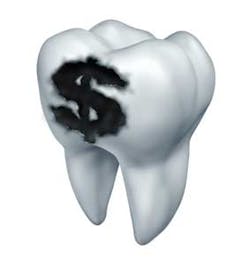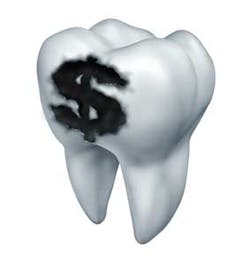Survey finds baby boomers want information on dental insurance
A lot goes into conducting a thoughtful survey. WellPoint recently conducted an online survey that reached a national sample of 2,500 American adults ages 18 and older, and 1,563 were over the age of 44, or "baby boomers." Dental professionals may find this information useful in dealing with their aging patient base, because the baby boomers aren't going anywhere soon, as most continue to take their health seriously.
The survey examines how Americans age 45 and olde, view dental coverage benefits. It reveals that baby boomers understand that good oral care can positively affect their overall heath. However, while 83% of Americans surveyed say they have medical coverage (from either an employer or the government), only half as many are covered by dental insurance. As baby boomers plan for retirement, those with dental coverage say they need more information about future costs and changes to their dental plan upon retirement.
RELATED:The status of baby boomers' health in the United States: the healthiest generation?
This survey also shows that nine out of 10 older Americans (93%) believe good dental care is important to their overall health and that routine dental check-ups can help prevent heart disease and other chronic conditions (90%). This awareness contrasts with the fact that only four in 10 older Americans (41%) say they currently have dental coverage (from an employer, private and/or supplemental). Furthermore, 32% of those without insurance admit to forgoing dental benefits because they have other expenses to worry about.
In addition, older Americans with dental insurance are concerned about maintaining their dental coverage upon retirement, with the majority admitting they are not aware of all their options. More than half (53%) of older Americans who have dental insurance worry about how they will afford coverage upon retirement and 62% say they are concerned about how coverage will change. And, two-thirds of older Americans say they lack information about dental insurance for retirement and they want more information about the dental insurance options available after retirement (67%) and about supplemental dental insurance coverage (65%).
“There has been a positive surge of awareness around personal health and it is assuring that baby boomers understand the link between dental care and overall health,” said Dani Fjelstad, president of WellPoint’s Dental business. “However, this survey uncovered a knowledge gap about dental insurance options that employers and insurers need to address.”
According to the survey, older Americans look at a variety of sources for information about dental insurance. Heath care providers top the list (17%), followed by insurance company websites (14%), human resource departments (13%), family members (12%) and friends (11%). In comparing baby boomers to the previous generation, baby boomers are significantly more interested in information about dental insurance options (70% versus 59%) and supplemental dental coverage (68% versus 58%) for retirement.
CONSIDER READING:More people enrolled in Obamacare in two days than in all of October
Additional survey results found that older Americans select dental coverage because it is vital to their overall health (58%), is inexpensive compared to paying out-of-pocket dental costs (52%), and protects them in case of dental emergencies (44%). As part of their dental coverage, older Americans with dental coverage are most interested in diagnostic and preventative services (77%), minor restorative dental services (67%), and prosthodontics (54%).
Nearly half of older Americans with dental coverage are interested in coverage for oral surgery (47%), while four in 10 are interested in emergency coverage (44%) and coverage for root canals (42%). Six in 10 Americans with dental insurance report they would pay more for comprehensive dental coverage, while more than a quarter would pay more for dental insurance if it included benefits such as fitness programs and/or legal or financial counseling services.

